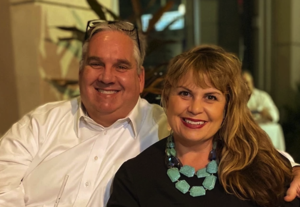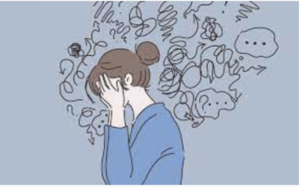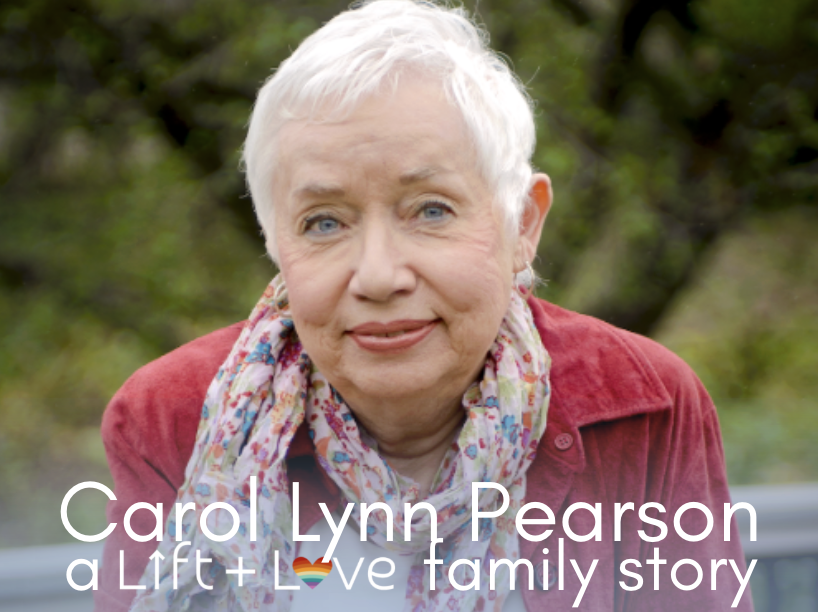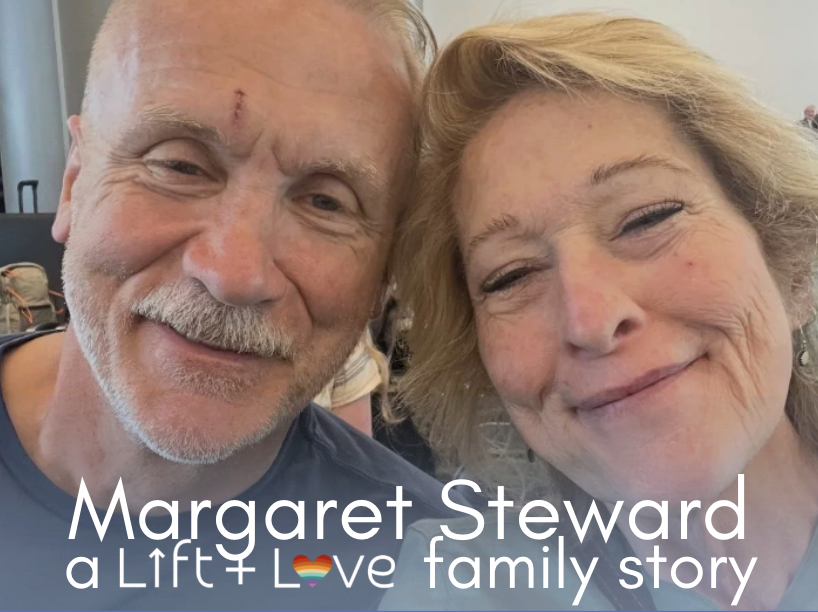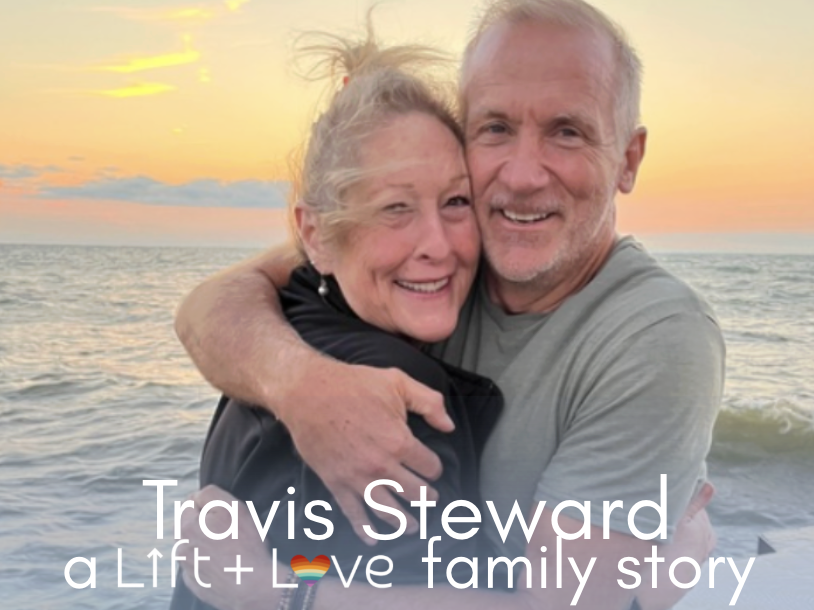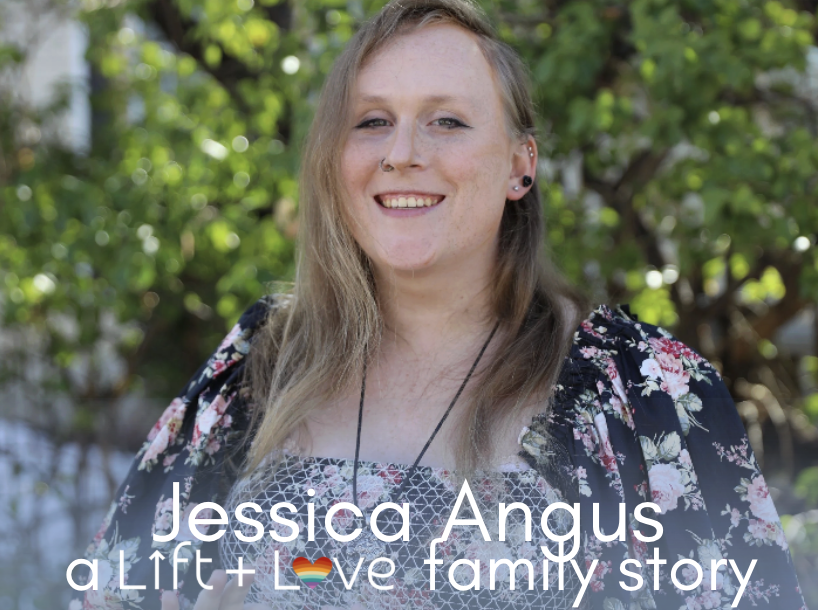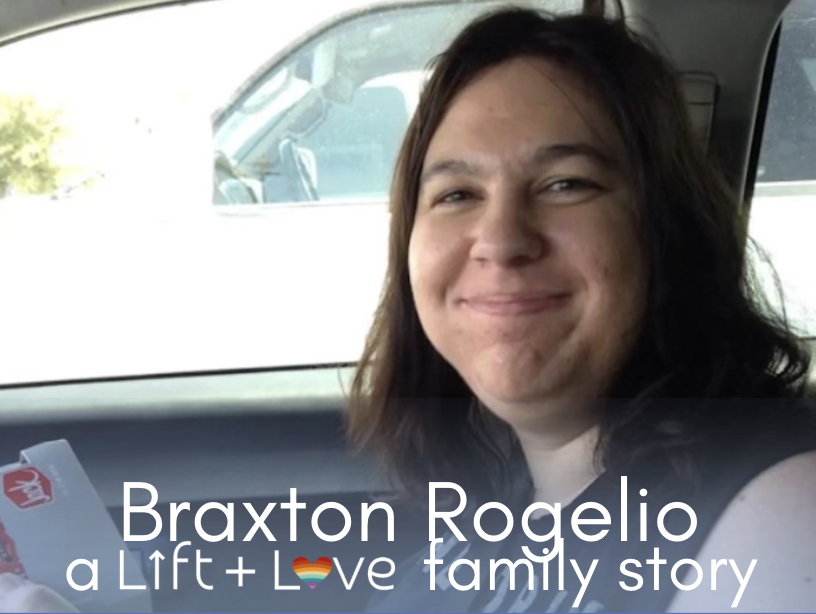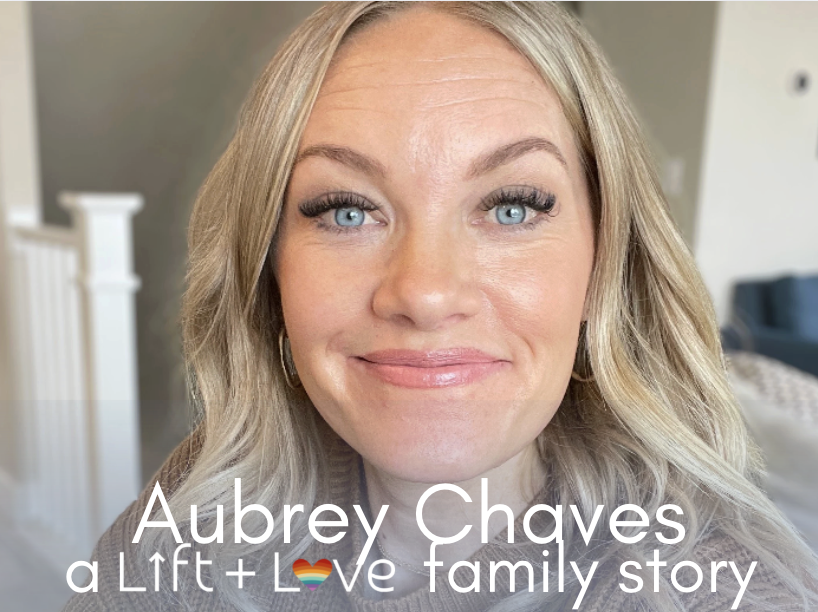LIFT + LOVE BLOG
How to protect your marriage while raising an LGBTQ child
According to the Wall Street Journal article, “Here Comes the Baby, There Goes the Marriage” approximately two-thirds of couples see the quality of their relationship plummet within three years of the birth of a child. Within five years after the birth of a first child, over 40 percent percent of couples will go their separate ways…
Did you know that children can be a marriage-killer?
According to the Wall Street Journal article, “Here Comes the Baby, There Goes the Marriage” approximately two-thirds of couples see the quality of their relationship plummet within three years of the birth of a child. Within five years after the birth of a first child, over 40 percent percent of couples will go their separate way
These numbers do not surprise me because parenting is the hardest job in the world. Parenting an LGBTQ child comes with even more unique challenges. You are giving a lot of your energy to your child and that doesn’t leave a lot left over for your marriage.
This is a common pattern that I have seen with my LGBTQ parent clients. They are so focused on helping their LGBTQ child that the by-product can be a marriage that starts to suffer.
So what can do you do to protect your marriage?
Our experience
When my son was first having emotional issues and then later came out as gay, the one emotion that I remember feeling was exhaustion.
Our family was experiencing so many overwhelming emotions. Everyday there was a new dynamic or situation that needed urgent discussion with my husband. It felt like my husband’s and I interactions focused 100% around my son and everything felt hard.
At the time, I thought we were just doing what was necessary to cope and survive and I didn’t see another way to handle it. This led to a constant feeling of heaviness in our relationship that actually made this time with my son harder to deal with.
I knew we needed to take a step back and figure out how to lighten the load and to start protecting our marriage. I started to examine our patterns and how we could do it better.
What I found was when I become more intentional in protecting our marriage that it actually created a stronger place of strength to help my son with his challenges.
Focus on Strengths not Weaknesses
Parenting is a team sport not an individual sport. It’s not a competition with who is the better parent.
There are some situations that John just has better skills in handling. I love that he is so calm in a crisis and I know that he loves that I am good at deescalating an argument.
You both don’t have to be good at everything. In fact, having different strengths actually makes you a more powerful parenting team.
The key is to not beat each other up on what you are not good at. Be very intentional to focus on each other’s strengths and not each other’s weaknesses.
How you do this is to think daily thoughts of how your spouse is doing it right. Whatever we are thinking our brains will find evidence for. Think the thought, find evidence for the thought, and then share with your spouse how they are doing it right. This 3-step process will make a huge difference in your relationship.
Create a Safe Place
You need to be each other’s safe place. What this looks like is you can say what is bothering you, no matter how petty it is, and the other person will not judge you for your thoughts.
In order for this to be safe place – you let each other see your “ugly” in a judgment free zone. You can be honest and vulnerable with each other and know that your spouse still loves and respects you.
We are all human beings with complicated emotions. Having a space to process all your hurts, inadequacies and ugly thoughts is as necessary to your mental health as exercising is for your physical health.
There are going to be days you don’t like your child. When you will say something stupid or your neighbor says something stupid. Life is messy. You need a place to process these hurts so you be emotionally healthy.
Everybody needs “that” person to process the ugly part of ourselves and lives – be “that” person for each other in your lives and your marriage will become stronger.
Tag Team
There are going to be days that you will be completely done. You will be done with the talking. You will be done with the worry. You will not feel up to being the parent.
Know your limits. If you are not feeling emotionally equipped to handle the day’s crisis, then it is time to tag out.
John and I assume we are both doing our best at all times. We also know that we will have hard days. Luckily our hard days usually haven’t occurred at the same time.
When one of us is having a hard day we have made tagging out part of our marriage culture. We respect each other’s limits. We don’t belittle each other for being honest about our capability. We pick up the parenting slack for each other as needed.
The ability to be honest with each other when we need additional help has created more love and understanding in our marriage.
Stop thinking they are doing it wrong
One time I was cooking with my sister and I was cutting an onion. She came over and instructed me how I was cutting the onion wrong. Her critique made the cooking experience a lot less fun. This is a funny example but we all sometimes make the mistake thinking our way is the best way and we forget that there is more than one way to cut an onion!
One of the biggest mistakes we make in marriage is to judge our spouse with how they are parenting. There are many ways to handle parenting – just like there are many ways to cut an onion.
Look for common ground. You don’t have to parent the same. You just have to agree to respect each other’s parenting styles.
When I have thoughts that my husband is not handling a situation right I immediately create disconnection with him. We all have opinions of how things should be done but if we want to protect our marriage you need to manage those thoughts.
When I see my thoughts go to “he is doing it wrong”– I have learned to add to those thoughts – Who says? Why do I think I know what is the best way for him to react or act? I remind myself that I am not the expert – that there are many ways to cut an onion!
I have trained my brain to go to– “he is doing the best he can” and “I am doing the best I can.” These thoughts keep me feeling connected to him especially when we are experiencing a situation with high emotions.
Create Space for Your Marriage
Creating space for your marriage needs to be a time priority. Parenting a LGBTQ child can make you feel on high alert constantly. There is not a lot of coasting when it comes to your parenting. It’s exhausting. It’s hard to feel connected and sexy when you are exhausted, worried and feeling a lot of fear for your child.
We found that regardless of how hard the week was we needed to carve out couple time. You might be thinking date night can’t solve everything, but it solves a lot. Some weeks I would live for that couple hours away with John, where I could be the girlfriend and not the mom. Having that balance in our lives help sustain us in the harder moments.
Get help
If you feel like you don’t know how to change your current patterns get help. If you are emotionally distancing yourself from each other and living parallel lives get help. If you are feeling overwhelmed with the stress of raising an LGBTQ child get help.
I repeat the “get help” because it is important. Your relationship with your spouse is your most important relationship. Treat it like it is. Respect your relationship enough to get it the right resources.
When you’re faced with a situation that feels out of control, professional help can be a godsend. A neutral third party can assess and offer perspective, and even help you develop a game plan for how to handle your specific hard.
I feel passionate about marriage. A strong marriage not only makes life a lot more fun but it makes your kids stronger. I have seen many of my clients completely change the culture of their marriage when they are equipped with the right tools.
-Jenie
Why do our brains like to worry?
When my son came out I worried. I worried a lot and about everything. I was eating worry for breakfast, lunch, and dinner.
I recently had to go to the dentist. I really love my dentist but I HATE going to the dentist. We have been at this same practice for 10 years. They know all of our children so well that they almost feel like family friends.
HGTV was on the tv and I when he walked in I joked that watching this all day must make for a lot of house projects for him. He laughed, but said "really we have it on all day because this is one of the only “safe” channels out there." I looked perplexed, so he then added – “you know even the cartoon channel isn’t safe and this one is becoming unsafe too. Every show now has two guys sitting on a coach holding hands – the token gay couple.”
I was so flabbergasted that I am ashamed to say that I didn’t even respond. Which makes me feel shame that I didn’t take the time to educate him how hurtful those words are.
But I did feel sad. Sad that this is what our LGBTQ community faces everywhere they go – even at the dentist – marginalized thinking which leads to marginalized treatment. Here was a man that we love and respect and had no idea he thought this way.
When my son first came out my mind would have gone straight to worry. Worry about all the possibilities how my son could get hurt. Worry that not even the dentist could be a safe place for him.
But worry is an indulging emotion that brings no returns. Worrying doesn’t help my son or myself.
Why does our brain try to convince us Worry is necessary?
Because we don’t like to feel helpless and there is a lot you feel helpless about, especially when your child is LGBTQ.
So our brains worry to try to gain back some control. It tells us the story that worry is necessary because at least we are taking action.
This is a lie.
Erma Bombeck said it best - “Worry is like a rocking chair: it gives you something to do but never gets you anywhere”
Worry appears to be necessary but I promise, it never changes the impact of the thing you are worrying about. Your brain will try to sell you that worry is necessary but this is a lie.
When my son came out I worried. I worried a lot and about everything. I was eating worry for breakfast, lunch, and dinner. You can imagine my indigestion and weight gain!
I felt like in order to be a good parent worry was necessary and important.
The result of all my worry was a disconnected, distracted, fearful mama. My parenting decisions were made from fear and worry, which made for a lot of parenting mistakes.
My worry wasn’t solving anything and in fact, it was causing more problems.
Then one day my life changed when I was working with my coach and I was telling her about how I was so worried about something that my son might do.
She asked me “Why was I worried?” I didn’t understand her question. I didn’t believe there was any other way to feel about it. I thought it was a dumb question because it was pretty obvious why I should be worried.
Then she offered me one of my favorite questions– it changed my relationship with worry.
She asked me "how was my worrying helping my son?"
Asking myself that question made me realize worrying was the opposite of helping. In fact, it was hurting my ability to help him by taking away my energy and blocking my creativity from actually helping him.
I couldn’t give her one useful answer for why my worry was necessary. I finally saw worry for what it was. A joy stealer. A manipulator of my positive emotions.
I was making parenting decisions from fear which really resulted in me trying to manipulate and control his actions so I could feel less worry.
My worry was coming from my mindset of something had gone wrong and I needed to solve the problem.
I was wrong. I needed to stop wasting my energy on things that were out of my control and instead I needed to focus on what I could control - who I wanted to be in this story.
I was telling myself that if I worry then it might prevent him from making bad choices. I needed to own up to the fact that his choices weren’t creating all of my negative emotion, I was.
This is the moment when I got my power back and I realized worry is ALWAYS optional and never necessary.
When worry tries to steal my energy I have learned to remind myself that being afraid of things going wrong isn’t the way for things to go right.
So how do you break the worry cycle and get back your power?
In order to overcome the habit of worry and all the anxiety and suffering that goes along with it, we must be willing to feel sad and accept that sadness is going to be part of our human experience.
I recommend you acknowledge and allow worry, but then also get clear on the thought that is generating the worry and question that thought. Is it helpful or useful? What’s the upside in believing it?
Find your worrisome thoughts because your brain will go where you tell it to. When I had my experience at the dentist my first thoughts were filled with worry. “What if he had said this to Nick?” “Is this not a safe place for Nick?”
Because I am onto worry and what it does – I know to answer my brain’s questions. I realized that this isn’t the first time people have said stupid things about LGBTQ people and it won’t be the last. And I know we have had many conversations with our son on how what people say and do says nothing about my son but has everything to do with the education of that person.
I know to avoid getting into the worry trap that I needed to allow myself to be sad. We don’t like to feel sad so we usually replace that emotion with worry. When we learn to process the sadness and accept that our world will always have sad moments is when we lose the need to worry.
Worry comes from thinking one of these thoughts. Your thoughts are either fabricating problems in the future, resisting reality, or not believing in your faith.
1) Present problems vs. fabricated future problems
We never know the future. We envision it, but that is exactly what it is- a vision. You can’t solve a problem that doesn’t even exist. Stop manufacturing problems in the future – it drives our brains crazy because our brains like to solve our problems – and the future problems we are envisioning are not solvable because they are made up.
Focus on today. What are the problems you are facing today? Stay in the present. This allows you to use your energy to solve what is solvable.
2) Accepting Reality vs. Resisting Reality
A lot of our worry comes from the story we are telling ourselves that something has gone wrong. That the reality of the situation shouldn’t be happening. That people should be different.
When we start telling ourselves the story that things are happening exactly how they should be and people are acting exactly how they should be is when we open up our brains up to see evidence for this thought. Me judging my dentist isn’t going to help solve the problem. But me thinking thoughts like he is acting this way because he doesn't understand gives me the emotion of compassion and from that emotion, it is so much easier to have the courage to act to help educate.
The magic of acceptance is we let go of trying to control the uncontrollable (you can't control the humans) and we focus on who we want to be in the story. I want to be the mom who feels compassion enough to say to the dentist "you might be right, but I know for my gay son, it sure helps with his emotional health when he feels represented in society even on TV."
3) Faith vs. Worry
When I feel worried I remind myself that Heavenly Father is in charge. He is aware of all of us. He knows our suffering. He has a plan for all of us. Jesus Christ's Atonement means we have nothing to fear.
Worry comes from thoughts that God can’t handle things. Even saying this out loud I find it funny that my brain tries to tell me that story. The Lord is always working for our good but life will not always feel good.
Your brain talks to you a lot – you need to talk to your brain more than you listen to the brain – what you want to focus on. This world we live in is not perfect. But there is a lot of good too. But my ability to experience the good is so much greater when I learned to manage how I interrupt life events - and lose the habit or worry.
Learning not to worry isn't something that comes automatically to our brains. Worry is our brain on default. It takes practice to catch the worry. And often it takes the help of another person to help us see what's going on in our brains. I worried myself (literally) sick for decades before I hired a coach to help me. Best investment I ever made.
I can help you through the worry too. You don't have to stay there. Your children don't have to stay there. Losing worry gives you more peace and confidence about your journey and you're child's journey - and frankly makes your everyday life experience so much better.
-Jenie


